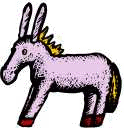




"We're all just walking each other home." -Ram Dass
"Be a lamp, or a lifeboat, or a ladder."-Rumi
"It's all one song!" -Neil Young




How permies.com works
What is a Mother Tree ?




Burra Maluca wrote:You say 'he'.
Is he entire? If so I think you'd have a lot less trouble if he was castrated.
"We're all just walking each other home." -Ram Dass
"Be a lamp, or a lifeboat, or a ladder."-Rumi
"It's all one song!" -Neil Young

 2
2




List of Bryant RedHawk's Epic Soil Series Threads We love visitors, that's why we live in a secluded cabin deep in the woods. "Buzzard's Roost (Asnikiye Heca) Farm." Promoting permaculture to save our planet.





"We're all just walking each other home." -Ram Dass
"Be a lamp, or a lifeboat, or a ladder."-Rumi
"It's all one song!" -Neil Young












 4
4





List of Bryant RedHawk's Epic Soil Series Threads We love visitors, that's why we live in a secluded cabin deep in the woods. "Buzzard's Roost (Asnikiye Heca) Farm." Promoting permaculture to save our planet.
 1
1





"We're all just walking each other home." -Ram Dass
"Be a lamp, or a lifeboat, or a ladder."-Rumi
"It's all one song!" -Neil Young
















List of Bryant RedHawk's Epic Soil Series Threads We love visitors, that's why we live in a secluded cabin deep in the woods. "Buzzard's Roost (Asnikiye Heca) Farm." Promoting permaculture to save our planet.




Bryant RedHawk wrote:hau Judith, how is the donkey training going? just wanted to check up on the progress.
Redhawk

"We're all just walking each other home." -Ram Dass
"Be a lamp, or a lifeboat, or a ladder."-Rumi
"It's all one song!" -Neil Young
 1
1




Judith Browning wrote: I still am not getting in the pen with him but meeting him at the gate for him to come to me for a brushing and a scratch.
"Your thoughts are seeds, and the harvest you reap will depend on the seeds you plant." - Rhonda Byrne




Thyri Gullinvargr wrote:
Judith Browning wrote: I still am not getting in the pen with him but meeting him at the gate for him to come to me for a brushing and a scratch.
I know of both horse trainers and zoo trainers that do this, especially for unknown or dangerous animals. It's called protected contact and it's possible to train quite a bit without getting into the pen. Zoo trainers even train animals to lean against the cage for blood draws and shots.
"We're all just walking each other home." -Ram Dass
"Be a lamp, or a lifeboat, or a ladder."-Rumi
"It's all one song!" -Neil Young












 1
1




List of Bryant RedHawk's Epic Soil Series Threads We love visitors, that's why we live in a secluded cabin deep in the woods. "Buzzard's Roost (Asnikiye Heca) Farm." Promoting permaculture to save our planet.
 1
1




"Your thoughts are seeds, and the harvest you reap will depend on the seeds you plant." - Rhonda Byrne




Thyri Gullinvargr wrote:FYI: Alexandra Kurland, who was one of the first people to write a clicker training book and it was for clicker training horses, has a blog post here where she talks a bit about protective contract: https://theclickercenterblog.com/2015/11/20/2015-clinic-season-an-introduction-to-clicker-training-day-1/. One thing to consider, is that it protects you both. A horse, donkey or whatever is free to move around and get away from you if they feel the need, and obviously you're aware that the reverse is true. That means both of you get to feel safe.

"We're all just walking each other home." -Ram Dass
"Be a lamp, or a lifeboat, or a ladder."-Rumi
"It's all one song!" -Neil Young
 1
1




Judith Browning wrote:thank you so much...have that lined up to read this afternoon in the heat of the day


 That's the cutest one.
That's the cutest one."Your thoughts are seeds, and the harvest you reap will depend on the seeds you plant." - Rhonda Byrne

|
We've gotta get close enough to that helmet to pull the choke on it's engine and flood his mind! Or, we could just read this tiny ad:
Learn Permaculture through a little hard work
https://wheaton-labs.com/bootcamp
|


